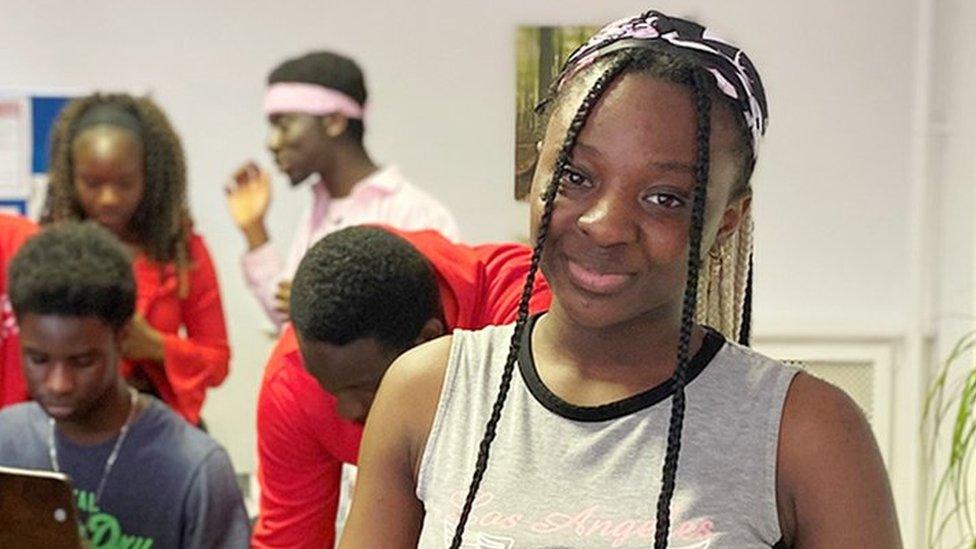Never Have I Ever: Netflix hit lets us 'represent Tamil culture'
- Published
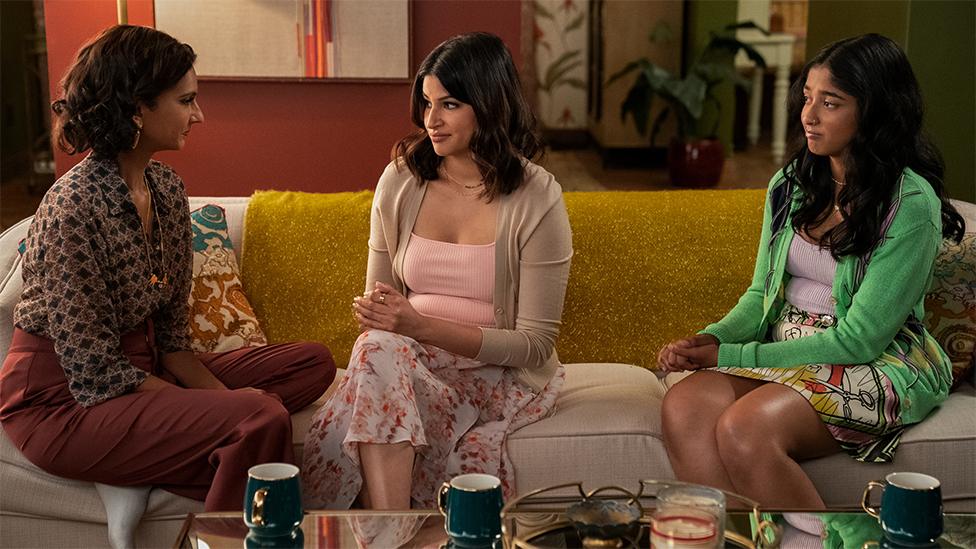
The journey of Nalini (left), Kamala (centre) and Devi (right) has captivated viewers of the show
Watching yourself portrayed on screen in a popular show is something communities around the world are keen to see.
And Never Have I Ever - which is currently in Netflix's top 10 - has been praised for giving fans that feeling.
"There is a fulfilment, a feeling you're not alone and you're reflected somewhere," Poorna Jagannathan tells BBC Asian Network.
She plays Nalini, the mum of main character Devi Vishwakumar.
The show, which released its fourth and final season this month, is about Devi's teenage journey (if you haven't caught up, this article contains minor spoliers).
But each character gets "given the space, background and history" usually reserved for the lead, says Poorna.
She feels that viewers don't normally "get to know these characters of colour as well as you do the white lead".
Richa Moorjani, who plays Devi's cousin, Kamala, says the show's diversity made it "a dream project to be a part of".
"We have so many diverse storylines, with the cultural aspects, LGBTQ+ storylines and disability," she says.
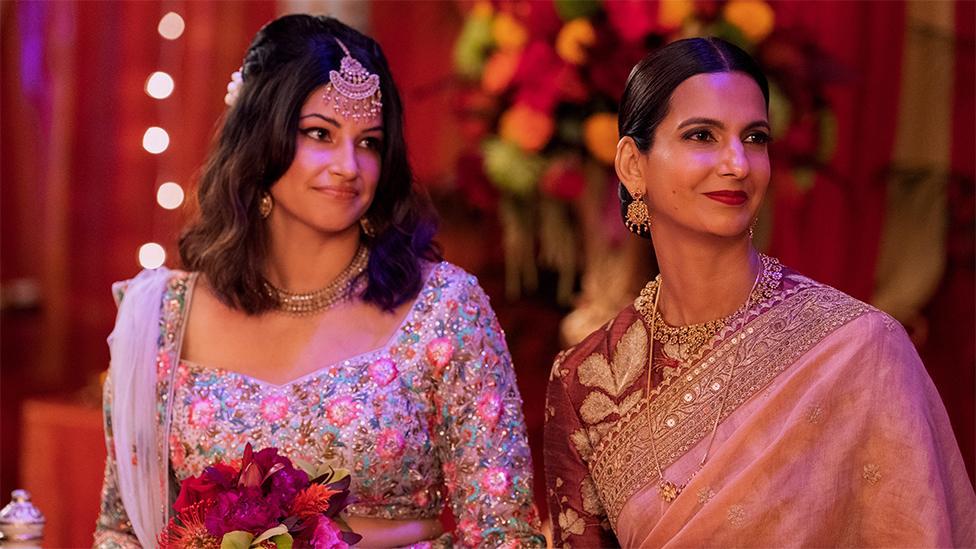
Richa (left) and Poorna (right) are satisfied with the show's finale
Richa says many shows in the past have had Indian or South Asian families among their casts but they've tended to be generic.
"They just have Indian accents but we don't know where in India they're from, what language they speak, their customs,," she says.
But Never Have I Ever makes specific references to Tamil culture, which was especially important for Richa. The ethnic group has roots primarily in southern India and Sri Lanka.
She points to the third season showing the Golu Festival - a celebration that takes place for people in south India.
"My family celebrated that my whole life growing up. To see that depicted on screen is hard to put into words what that feels like."
Poorna agrees, saying traditional customs and ways - such as eating dishes with your hands can feel "embarrassing" because it's not normally reflected on TV.
"Then suddenly to see all of us eating with our hands, when you show it, it becomes normal.
"And not only does it normalise it, you start celebrating yourself and where you come from.
"When you see yourself, hear words you've grown up with and when you see people who eat like you do in your family… you feel really close to something magical."
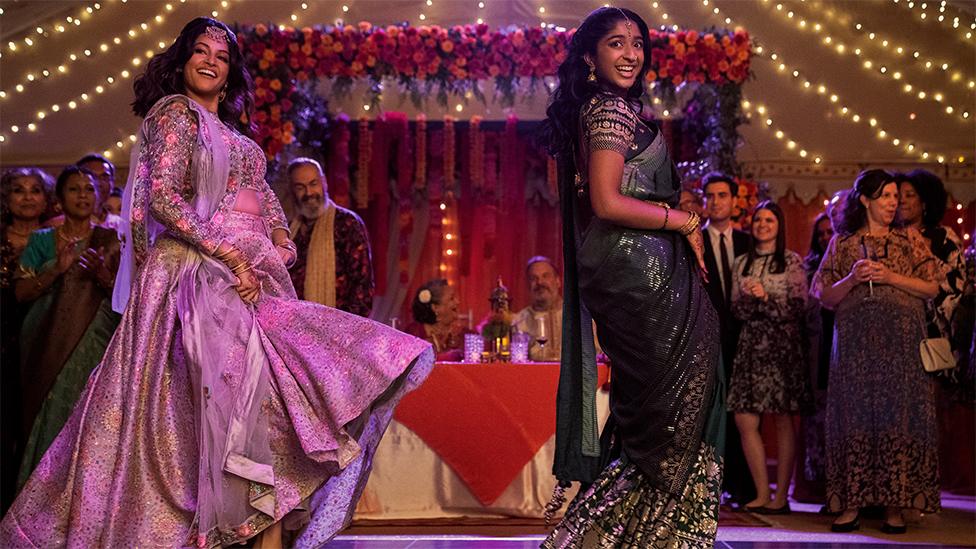
Richa feels this dance shows Devi's evolution into embracing her culture more
Another element of representation which captured the hearts of viewers was Devi and Kamala's traditional dance in the final season.
Richa calls it one of her "most cherished memories on set", with it being an example of Devi embracing her culture and identity.
Fans of the show, especially the first season, will know that she was once reluctant to do that.
"It's beautiful, because you see how much has changed with her and how much she's evolved," Richa says.
Soundtracking the scene with a specific Tamil song was important "because it could have easily just been a Bollywood dance," she adds.
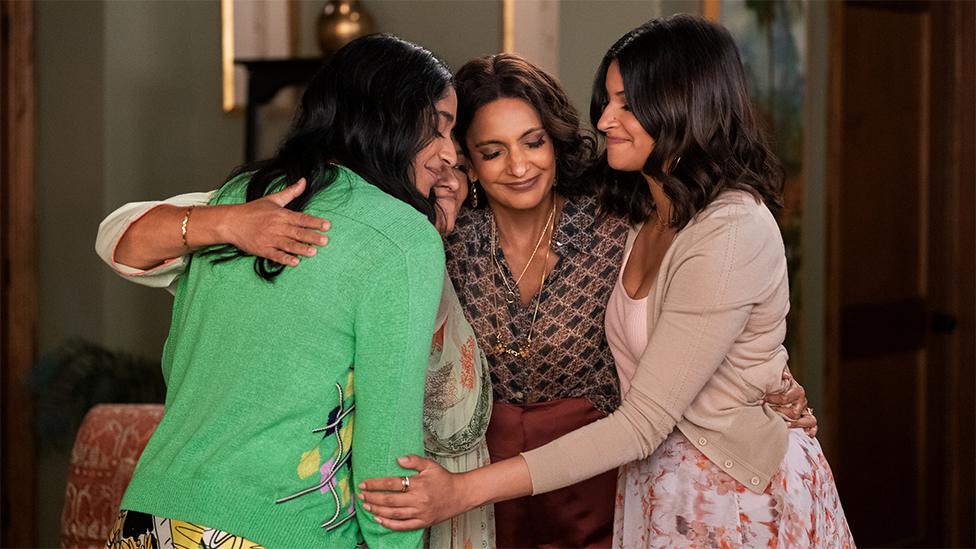
The show has been praised for showing four generations of women together
Poorna feels that the industry is getting more diverse but there's still "very little representation".
She remembers being made to feel like "a diversity hire" by some casting bosses in the past - experiences that made her feel angry.
Poorna says she now looks for parts where she can "represent something of myself".
She feels it's important to "remain hopeful, keep creating but remain super-vigilant" and build on Never Have I Ever's foundation.
She says rights and progress can be "taken away in no time", referencing the Roe v Wade decision in the US, which effectively ended the constitutional right to an abortion for millions of American women.
Richa adds: "We have to not get complacent and feel like everything's OK now, because there is still a huge racism problem, and there's still a huge lack of opportunity for us."
There have been some complaints about the finale and the characters falling for white love interests.
But Poorna embraces the criticism and says it doesn't add to the pressure of playing an important role.
"People want to see themselves, the most accurate portrayal of themselves. And I think the show is just the beginning," she says.
Richa says it's "just great to get the feedback, whether people love it, or they don't".
"It's not possible for one show to make every single human being on this planet feel represented.
"I don't think it's necessarily unfair to have that expectation. But I also think that it's just not realistic."
Additional reporting by Alyshea Chand


Follow Newsbeat on Twitter, external and YouTube, external.
Listen to Newsbeat live at 12:45 and 17:45 weekdays - or listen back here.
Related topics
- Published17 June 2023
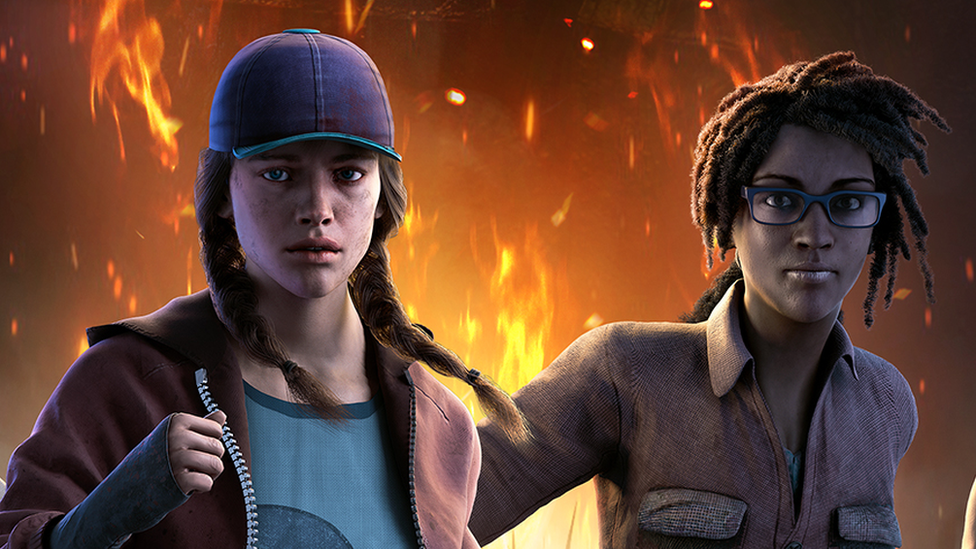
- Published24 May 2022
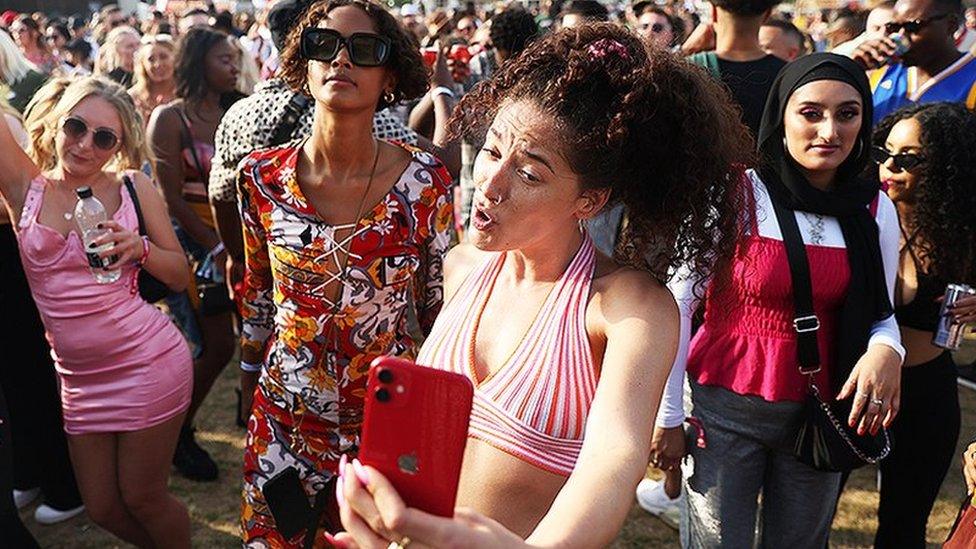
- Published19 January 2023
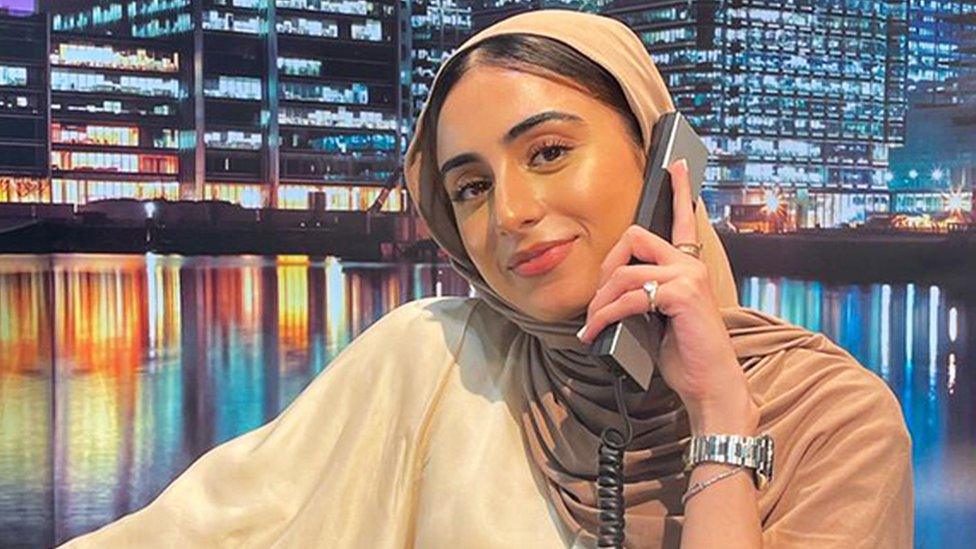
- Published13 April 2023
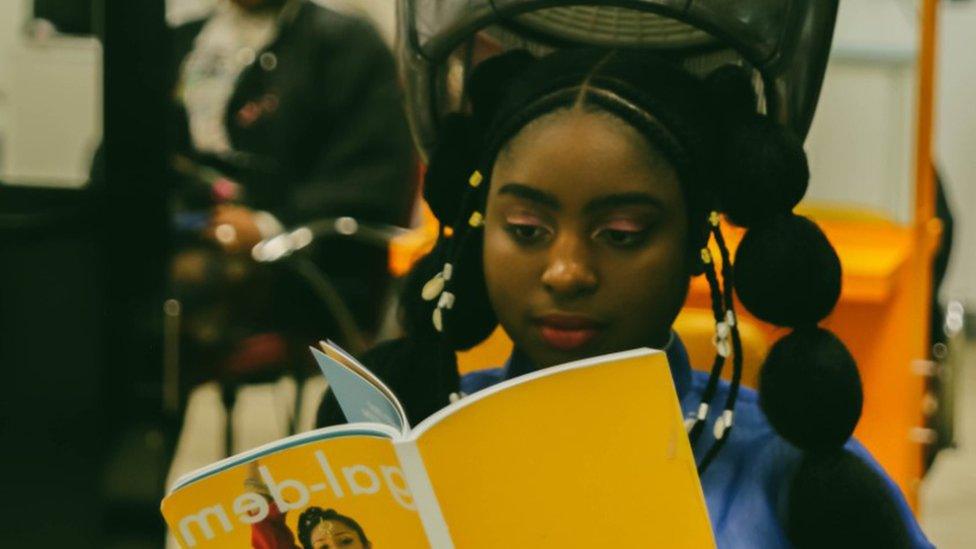
- Published7 May 2023
